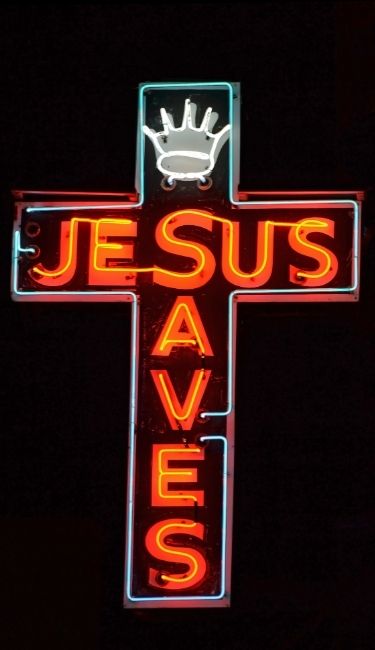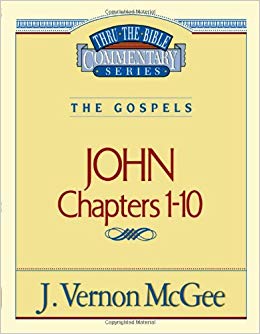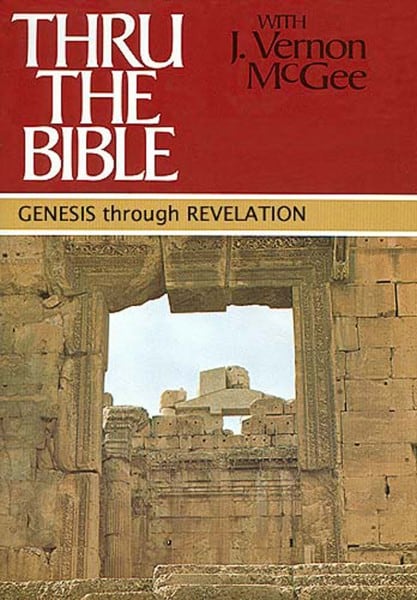J. Vernon McGee (1904-1988) was one of the most popular Bible teachers in the 20th century. Christians in the 21st century still listen to his archive of radio sermons and read his commentaries. Many people familiar with McGee’s ministry want to know why he left the Presbyterian church.
J. Vernon McGee left the Presbyterian denomination because it embraced liberal theology. He was appalled that a denomination with such a rich biblical heritage would entertain and promote liberal views and yield to a progressive theological agenda. McGee was also not a five-point Calvinist.
When a person listens to McGee’s recorded teachings and reads his Bible commentaries, it becomes clear that he employed a literal interpretation of the Bible. This conservative approach to the text put him at odds with any non-literal understanding of Scripture. Keep reading to learn more, including audio in which McGee describes his departure from the Presbyterian denomination.
This website helps readers identify which commentaries are best for their purposes. See The Top 50 Bible Commentaries Series to learn more.

From Presbyterianism to Non-Denominationalism
McGee was ordained in the Presbyterian Church USA denomination in 1933. He would go on to pastor Presbyterian churches in Tennessee, Texas, and California. He left the denomination in 1955, though McGee says that theologically the denomination left him long before that.
McGee pastored a conservative non-denominational church called Church of the Open Door in Southern California from 1949 to 1970, which is when he retired.
In the 1920s and 1930s, the PCUSA denomination experienced an internal divide, which is sometimes referred to as the Fundamentalist-Modernist controversy. Classic, orthodox doctrines of the Christian faith that the modernist, progressive faction challenged include:
- the inspiration and authority of Scripture
- the atoning death and bodily resurrection of Jesus Christ
- the virgin birth of Christ
- the miracles of Christ
- that God created the world directly and not through an evolutionary process
McGee’s explanation in his own words: McGee was once asked why he left the Presbyterian church on a radio program. Here is his answer:
McGee believed these fundamental truths of the Christian faith. He also taught and preached them. McGee promoted these doctrines on his radio program and in his commentaries. It didn’t surprise many people that he took issue when certain leaders in the PCUSA abandoned these teachings and replaced them with unorthodox teachings.
See my video about J Vernon McGee’s commentaries below.

Was J. Vernon McGee a Calvinist?
A Calvinist holds to the theological teachings of John Calvin. Though Calvin himself didn’t create the acronym T.U.L.I.P. to summarize his theology, it’s conventionally used to teach his theology. T.U.L.I.P. stands for:
- Total Depravity
- Unconditional Election
- Limited Atonement
- Irresistible Grace
- Perseverance of the Saints
Did McGee hold to these doctrines? Was he a Calvinist? J. Vernon McGee was not a Calvinist when the term is defined according to the T.U.L.I.P. acronym. Isolated sound bites from his teachings sometimes don’t paint the whole picture for listeners. Though McGee affirmed Unconditional Election, for example, he denied Limited Atonement.
Some would describe McGee’s theology as having elements of Calvinist beliefs in it. Still, others would say since Calvinism is an interconnected system, one can’t affirm some aspects of it and deny other aspects of it because that is tantamount to denying the entire paradigm.
J. Vernon McGee’s commentary series is named after his radio show: Thru the Bible. See J. Vernon McGee Bible Commentaries to learn more.

McGee on Predestination and Election
To illustrate McGee’s teaching on predestination and election, his commentary on Ephesians will be used. Though the quotations given below accurately reflect McGee’s views on the passage referenced, they are representative, so the reader is encouraged to read them in context, and their entirety, in McGee’s commentary on Ephesians.
The first comment quoted pertains to Ephesians 1:4, which reads, “According as he hath chosen us in him before the foundation of the world, that we should be holy and without blame before him in love” (KJV; McGee preferred the KJV).
About this verse, McGee writes: “God chose believers in Christ before the foundation of the world, way back in eternity past. That means that you and I didn’t do the choosing… The entire choice is thrown back upon the sovereignty of the wisdom and goodness of God alone” (p. 27).
McGee then quotes Charles Spurgeon (1834-1892), a Reformed or Calvinist Baptist preacher who once said, “God chose me before I came into the world, because if He’d waited until I got here, He never would have chosen me.” McGee then adds: “It is God who has chosen us—we have not chosen Him” (p. 27).
McGee on Limited Atonement
Also in McGee’s comments on Ephesians 1, he mentions the nature of the atonement. Calvinists, when defined according to the five points of T.U.L.I.P., hold to Limited Atonement, meaning that Christ died only for the elect. The contrary view is Unlimited Atonement, meaning Christ died for all people.
In his comments on Ephesians 1:4, McGee teaches that God wants his people to live holy lives. To support this point, he cites 1 John 2:2, “And he is the propitiation for our sins: and not for ours only, but also for the sins of the whole world” (KJV).
McGee comments: In his comments on Ephesians 1:4, McGee teaches that God wants his people to live holy lives. To support this point, he cites 1 John 2:2, “And he is the propitiation for our sins: and not for ours only, but also for the sins of the whole world” (KJV).
McGee comments: “By the way, that answers once and for all the question of a limited atonement, that is, that Christ died only for the elect. This verse in 1 John makes it clear that He died for the whole world” (p. 29).”
He continues, “McGee admits there is some mystery too, too: “It is a glorious and wonderful thing that the God of heaven would elect some of us down here and save us. I don’t propose to understand all that — I just believe it” (p. 29).
Are you interested in Reformed commentaries? See 100 Reformed Bible Commentaries comparison chart to browse volumes.
McGee Refutes Calvinism
In answer to a listener’s question on Calvinism, McGee strongly refutes the theology of the French reformer. He likens the God of Calvinism to heathen gods. McGee further says that if Calvinism is true, then God isn’t just or righteous.
McGee died of heart failure in 1988 at the age of 84.
Also see:
Was William Barclay A Universalist?
Why Aren’t Peter O’Briens Commentaries Published Anymore?
Related Questions
Whole Bible commentaries will help you understand every passage of Scripture better. If Bible commentaries on single books are like studying individual trees, whole-Bible commentaries will help you...
With so many Bible commentary series available today, many people want to know which ones are best. There is a wide variety of commentary series today because readers have various purposes for using...
